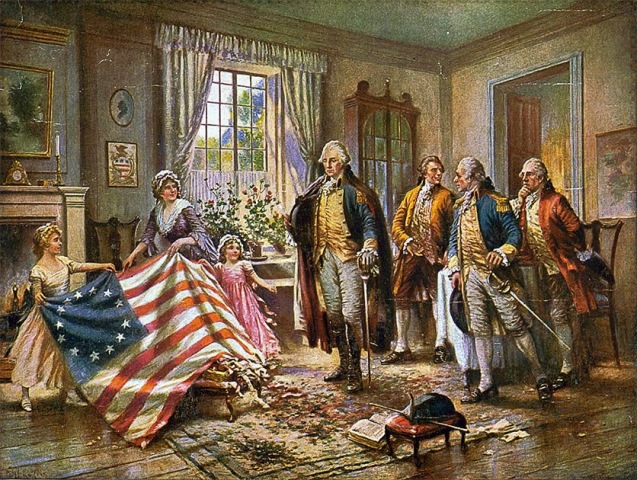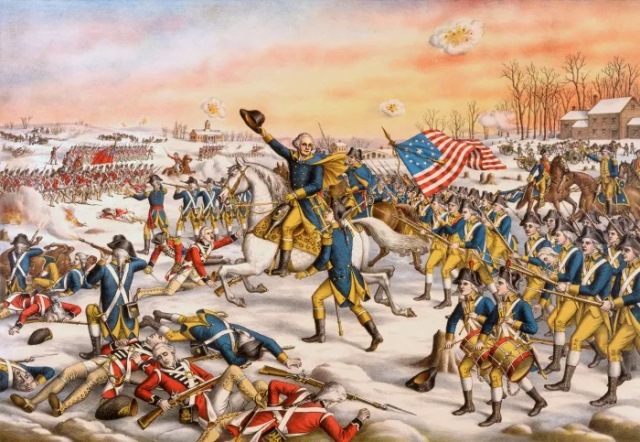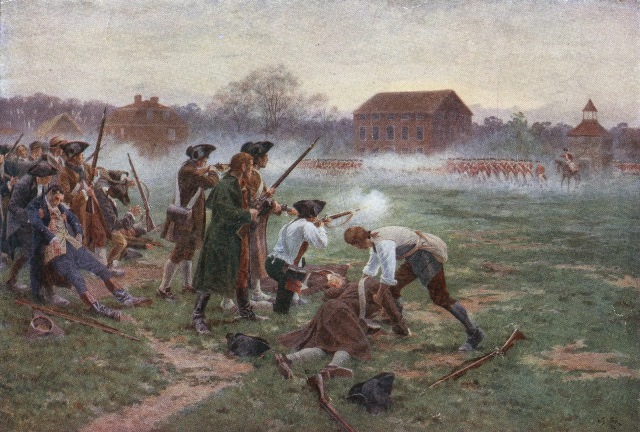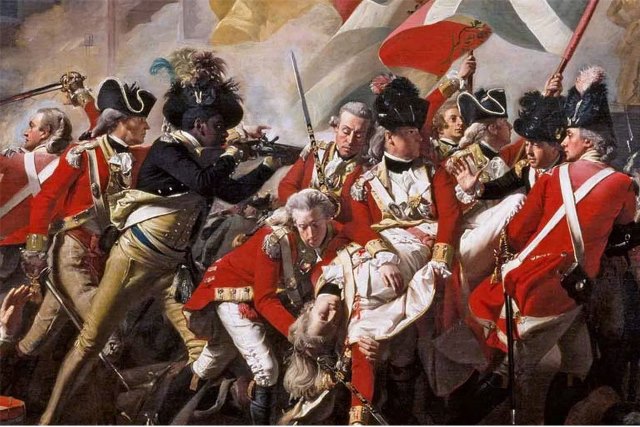Last Updated on March 9, 2023
The American Revolution was a pivotal moment in history that transformed a group of British colonies into a new, independent nation that would define the modern world. This epic struggle for freedom, waged between 1775 and 1783, involved countless wars, political maneuvering, and ideological debates.
In essence, the American Revolution was a clash between two very different visions of what America could and should be. On one side were the patriots, who championed liberty, democracy, and self-government. On the other side were the loyalists, who believed the colonies should remain part of the British Empire.
However, after eight long years, the patriots prevailed, paving the way for a new era of American nationhood. This also set the stage for the democratic ideals that still inspire people today.
Read on as we explore the fascinating happenings of the American revolution era.

The Significance of the American Revolution
The American Revolution marked the transformation of British colonies in North America into a new, independent nation. Patriots and the British government went head-to-head from 1775 to 1783.
Various factors, including the French and Indian War, British policies, and ideological and political differences between colonists and the British government, caused this notable event in American history.
The Revolution had a lasting impact on American society and politics, as well as on culture and the world stage. It established the principles of freedom, democracy, and self-government as the foundation of the new nation.
In addition, the Declaration of Independence, written by Thomas Jefferson in 1776, declared the colonies’ independence from Britain and outlined these principles. The Constitution, ratified in 1788, created a strong central government with three branches: the legislative, executive, and judicial.
The American Revolution inspired other revolutions and movements for independence around the world. It also impacted American culture, leading to the development of a uniquely American identity and influencing literature, art, and music.
Read: How the United States Erased Native Americans From Its History
Background
The British colonies in North America were established in the 17th century for Britain to expand its empire and increase its wealth.
Over time, the colonies developed their own unique cultures and identities, but they remained under the control of the British government.
The relationship between the colonies and Britain was composite and often contentious.
On the one hand, the colonists benefited from the protection and resources provided by the British government. On the other hand, they chafed under British rule, which they saw as distant and arbitrary.
As a result, the British government passed a series of laws and policies designed to assert its control over the colonies.
However, these laws were fiercely resisted by the colonists, who saw them as violations of their rights and freedoms.
The tension between the colonies and Britain ultimately led to the outbreak of the American Revolution in 1775. The colonists declared their independence from Britain and formed a new nation.

Causes of the American Revolution
A combination of many factors was responsible for the American Revolution. In the following paragraphs, we’ll discuss these events in detail.
British Policies
The British government imposed a series of policies aimed at raising revenue from the colonies. These policies included the Sugar Act, the Stamp Act, the Townshend Acts, and the Tea Act. However, the colonists believed they were being taxed unfairly without representation in the British government, leading to widespread protests and resistance.
Ideological and Political Differences
The colonists had developed a uniquely American identity based on principles of freedom, democracy, and self-government. They believed they had the right to govern themselves and make their own decisions. But the British government desired a strong central government with the monarch as the ultimate authority.
Economic Differences
The colonists had developed a strong economy based on agriculture, trade, and manufacturing. They believed they had the right to control their economy and trade with other countries.
However, the British government wanted the colonies to exist for the benefit of the British economy. Hence, they mandated that the colonies be subject to British economic policies.
French and Indian War
The French and Indian War, which lasted from 1754 to 1763, was a costly conflict fought between the British and the French. The British government believed that the colonists should pay for the cost of the war since it was fought to protect their interests. This led to the implementation of various taxes and policies that taxed colonies for more money.
The Boston Massacre
In 1770, tensions between the colonists and British soldiers stationed in Boston boiled over, resulting in the Boston Massacre. This event, where five people were killed by British soldiers, further increased tensions between the colonists and the British government.
Intolerable Acts
In response to the Boston Tea Party, the British government passed a series of harsh laws, the Intolerable Acts. These laws closed the port of Boston, suspended the Massachusetts legislature, and allowed British officials accused of crimes to be tried in England. The colonists saw these laws as a violation of their rights and an attack on their freedom.
Read: The Independence Movements and Decolonization of Africa

The Revolutionary War
The Revolutionary War, also known as the American War of Independence, was fought between the thirteen American colonies and Great Britain from 1775 to 1783. The war resulted from growing tensions between the colonists and the British government, ultimately leading to the colonists declaring their independence from Great Britain.
It began in April 1775 with the battles of Lexington and Concord, fought near Boston, Massachusetts. These battles marked the beginning of the American Revolution and led to a call for troops from the colonies to form a Continental Army, with George Washington appointed as its commander-in-chief.
A series of defeats for the Continental Army marked the early years of the war. This included the Battle of Long Island in 1776, in which the British forces overwhelmed the Americans, leading to Washington’s retreat to Manhattan. However, the Continental Army turned the tide of the war with victories at Trenton and Princeton in 1776, which boosted the morale of the American troops.
The British attempted to split the colonies by launching an invasion from Canada in 1777. But they were ultimately defeated at the Battles of Saratoga, which marked a turning point in the war. The American victory at Saratoga convinced the French to join the war on the side of the Americans.
This provided much-needed support in the form of troops and supplies. The war continued with several battles and skirmishes, including the Battle of Yorktown in 1781, which marked the end of the war. Furthermore, the Continental Army, along with the support of the French navy, was able to surround and capture the British army under General Cornwallis, effectively ending the war.
The Treaty of Paris was signed in 1783, officially ending the Revolutionary War and recognizing the independence of the United States.
The Declaration of Independence
The Declaration of Independence is a document that the Continental Congress adopted on July 4, 1776. It declared that the thirteen American colonies were no longer subject to British rule and were now independent states.
This infamous document was primarily authored by Thomas Jefferson, with input from other members of the Continental Congress. The Declaration of Independence is considered one of the most important documents in American history and has been a symbol of democracy and freedom worldwide.
It established the principles of liberty, equality, and self-government that are still fundamental to American society today.

The Formation of a New Nation During the American Revolution
The formation of a new nation refers to the establishment of the United States of America after the Revolutionary War.
Following the signing of the Treaty of Paris in 1783, which officially ended the war and recognized American independence, the newly formed United States had to establish a government and create a framework for the new nation.
This process began with the drafting of the Articles of Confederation, which served as the United States’ first constitution.
However, the Articles proved ineffective and were replaced by the United States Constitution in 1787. The Constitution established a federal system of government and set out the framework for the three branches of government: the legislative, executive, and judicial branches.
Legacy of the American Revolution
The American Revolution had a profound impact on American society and the world at large. Its legacy can be seen in several areas, including:
- Establishing a new nation focused on democracy, freedom, and self-government.
- It was an inspiration to similar movements for independence and democracy globally.
- The expansion of voting rights and the development of participatory democracy.
- It kick-started the fight to end slavery in the United States. However, this was a long and difficult struggle that continued after the Revolution.
- The growth of American nationalism and patriotism helped to unite the country and build a sense of national identity.
- The development of American industry and commerce, as the new nation sought to establish a strong economy.
- It impacted the world stage, as the United States emerged as a major world power in the 20th century.
Overall, the legacy of the American Revolution is one of progress, growth, and the pursuit of democracy and freedom. It has shaped American society and the world at large in countless ways and will continue to do so for generations to come.
Before you go…
Hey, thank you for reading this blog to the end. I hope it was helpful. Let me tell you a little bit about Nicholas Idoko Technologies. We help businesses and companies build an online presence by developing web, mobile, desktop, and blockchain applications.
We also help aspiring software developers and programmers learn the skills they need to have a successful career. Take your first step to becoming a programming boss by joining our Learn To Code academy today!











